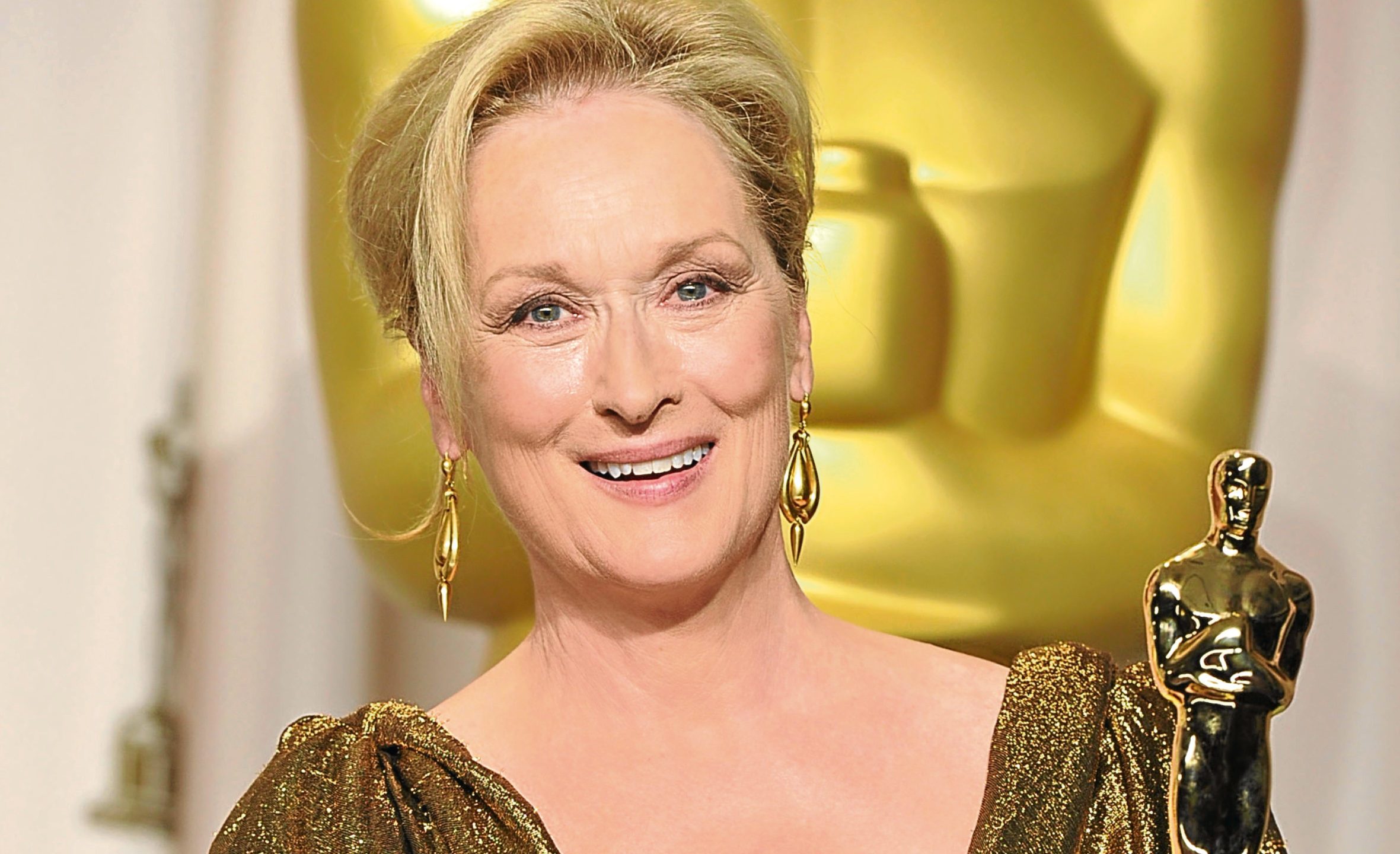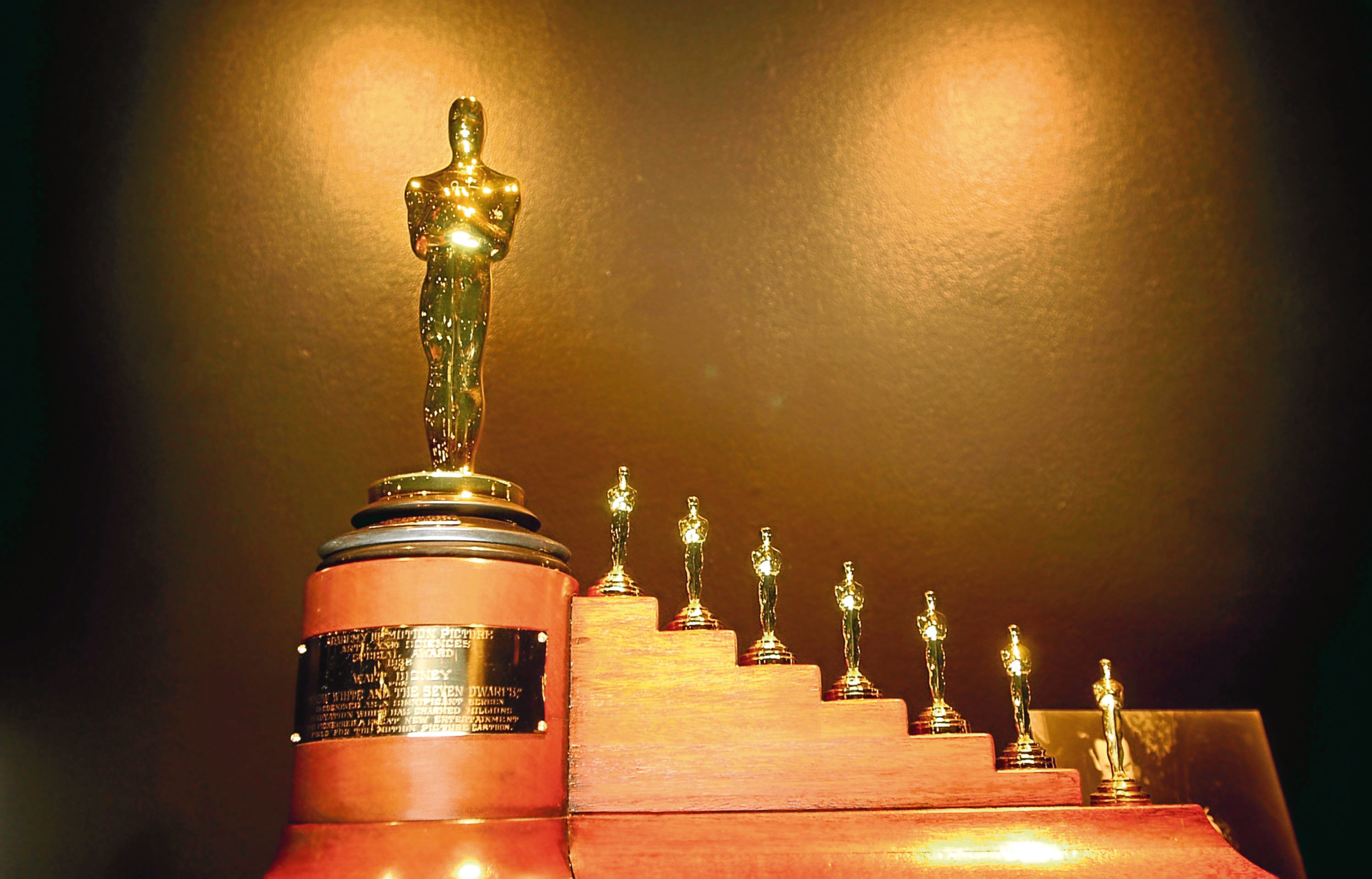
WE’RE all familiar with that Oscars trophy, the statuette of a knight standing on a reel of film.
Do you know, though, what the significance of that trophy is, or when the Academy Awards even began?
The very first Academy Awards ceremony took place in 1929, honouring films and celebrities from the previous two years.
Emil Jannings was the first actor to receive an award, which stood at 13.5in tall, was made of gold-plated bronze, weighed 8.5lb and depicted a knight holding a crusader’s sword standing on a reel of film with five spokes.
The number of spokes was no coincidence. Each represented a category of the academy — Actors, Writers, Directors, Producers and Technicians.
By and large, the trophy has remained the same, apart from during the war, when metal shortages led to the introduction of pseudo-awards.
Lack of bronze meant that, for three years, awards were moulded in plaster, then painted gold. Once the war was over, the winners were able to trade in their plaster trophies for a regular version.
It is not 100% clear where the name Oscar came from, as there are conflicting stories.
Actress Bette Davis — a president of the Academy — once claimed she named it after her first husband, Harmon Oscar Nelson. Executive Secretary Margaret Herrick, meanwhile, claimed that when she saw the award in 1931, she pointed out that it resembled her Uncle Oscar, a nickname for her cousin.
Columnist Sidney Skolsky was there when Margaret noted the similarity, and wrote the heading: “Employees have affectionately dubbed their famous statuette Oscar.”
The Academy had officially adopted the moniker by 1939.
Whatever the origins of the trophy’s name, Meryl Streep is head and shoulders above the rest of the acting world in terms of the amount of times she’s been nominated for one — an incredible 20.
She’s won Best Actress three times, for Kramer vs. Kramer, Sophie’s Choice and The Iron Lady.
After Meryl, Jack Nicholson and Katharine Hepburn are tied, with 12 nominations each.
The youngest person to win was Shirley Temple, who was just five when she collected her gong, though it was an honorary award.
The oldest winner is Christopher Plummer, Best Supporting Actor for Beginners, in 2012, at 82.
Only two actors have won an award posthumously, Heath Ledger in 2009, and Peter Finch in 1976.
Peter had succumbed to a heart attack in the January, and when he won the Best Actor title, for Network, his wife collected it.
Meanwhile, after Heath had turned in a brilliant performance as The Joker in Batman flick The Dark Knight, he passed away from complications from mixing his prescription drugs. He was 28.
Shortly before his death, he’d said The Joker had been his favourite role, so it’s fitting he was commended for the performance.
It probably won’t surprise you to hear Walt Disney holds the title for most awards for a single person — as a producer, he worked on no fewer than 667 projects, after all.
He also worked as a director and writer, amongst other things, so there was plenty of potential for Walt to win.
As well as having the most wins, Walt can claim to have more nominations than anyone else. Yes, even more than Ms Streep.
In total, he won 22 competitive Oscars and three honorary ones, out of 59 nominations. He was nominated for at least one Oscar a year between 1942 and 1963.
Given the number of nominations versus the actual wins, he actually also holds the record for the most losses. But we think 25 Oscars would have been enough to keep him smiling.
One of those honorary Oscars was for Snow White And The Seven Dwarfs, in 1939, and although he received one ordinary looking trophy, it also had seven tiny Oscars at the base!
Snow White was being considered as Best Picture, but it made such an impact and was so unlike any other film of the times that the board decided to honour it with a special award.
Walt may have set a lot of records at the Oscars, but other films and celebrities created Academy Award firsts, including the Godfather series.
Not only did Parts 1 and 2 both win Best Film, but the character Mafia man Vito Corleone has earned two different stars the glory of winning Best Actor.
This is the only instance of two actors — Marlon Brando and Robert De Niro — playing the same character to both celebrate Oscars triumph.
It’s worth bearing in mind that Robert De Niro was also acting primarily in a foreign language, and is one of only five actors to win Best Actor for a role not entirely in their mother tongue.
In 90 years of awards, do any films in particular stand out? In terms of numerous wins, yes.
Titanic, Ben Hur and Lord Of The Rings: Return Of The King all won 11 Oscars. The latter was also the only film to take home every award for which it was nominated.
Titanic ties with All About Eve (1950) for the most nominations for any one film, with a total of 14.
In 1999, for her role in Shakespeare In Love, Gwyneth Paltrow made a particularly long acceptance speech, which was much commented on.
However, while she did have plenty to say, Greer Garson spoke for five-and-a-half minutes when she won the 1943 award for Best Actress in Mrs Miniver, more than twice as long as Gwyneth spent expressing her gratitude, and bagged a place in the Guinness Book Of Records for longest Oscars acceptance speech.
In 2010, the Academy put a 45-second time limit in place, but there are many winners who wouldn’t have required that.
Accepting the Irving G Thalberg Memorial Award in 1968, the Master of Suspense himself, Alfred Hitchcock, uttered just five words. Initially only saying: “Thank you,” he paused, before leaning back down to the mic and adding: “very much indeed.”
Patty Duke was even less verbose in 1963. Awarded the honour of Best Actress for The Miracle Worker, Patty kept it brief, saying simply: “Thank you.”
Whoever wins this year, the Oscars event is a huge event in the Hollywood calendar and we can confidently say it will be around for many years to come.

Enjoy the convenience of having The Sunday Post delivered as a digital ePaper straight to your smartphone, tablet or computer.
Subscribe for only £5.49 a month and enjoy all the benefits of the printed paper as a digital replica.
Subscribe